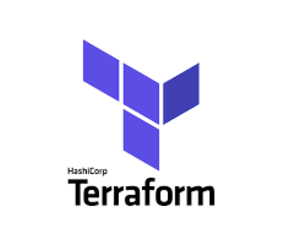Services - Terraform
Experience
Projects
Terraform

Terraform Basics
Understanding Terraform Concepts: Gained foundational knowledge of Infrastructure as Code (IaC) using Terraform, including core concepts like state files, configuration files, and modules.
Writing Simple Configurations: Developed basic Terraform scripts to define and provision cloud resources, including EC2 instances and S3 buckets.
Managing Terraform State: Learned to manage Terraform state files to keep track of the resources being provisioned and to ensure accurate updates and deployments.
Terraform Providers and Modules
Using Terraform Providers: Implemented various Terraform providers such as AWS, Azure, or Google Cloud to interact with different cloud services, enabling resource management across multiple cloud platforms.
Leveraging Terraform Modules: Utilized pre-built modules from the Terraform Registry to streamline the configuration of complex resources, reducing the need for repetitive code and ensuring best practices.
Creating Custom Modules: Created custom Terraform modules to encapsulate and reuse code for common infrastructure patterns, improving code maintainability and scalability.
Terraform Plan and Apply
Executing Terraform Plan: Applied the terraform plan command to preview changes before applying them, ensuring that proposed changes align with desired outcomes and avoiding unintended modifications.
Applying Infrastructure Changes: Utilized the terraform apply command to execute infrastructure changes based on configuration files, deploying and updating resources in a controlled manner.
Managing Resource Dependencies: Managed dependencies between resources to ensure correct provisioning order and handle complex infrastructure setups.
Version Control and Collaboration
Integrating with Version Control: Implemented version control practices by storing Terraform configurations in Git repositories, enabling collaborative development and change tracking.
Best Practices and Optimization
Following Terraform Best Practices: Adopted best practices for Terraform configuration, including modular design, variable management, and state file handling to ensure efficient and error-free deployments.
Optimizing Terraform Configurations: Analyzed and optimized Terraform configurations to improve performance and reduce resource costs, applying principles of least privilege and resource scaling.
